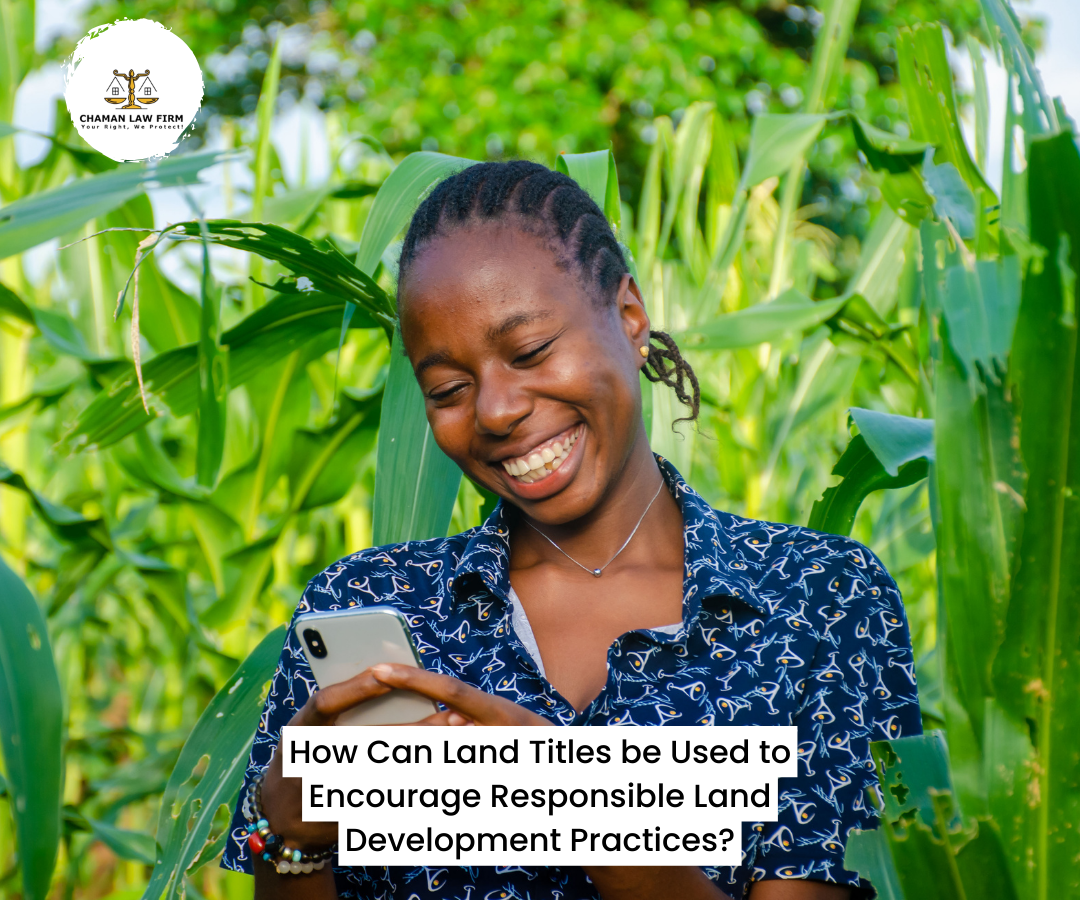
Introduction
Land development in Nigeria is on the rise, with both residential and commercial projects shaping the landscape. However, ensuring responsible land development practices is crucial for sustainable growth. In this article, we explore how land titles can play a pivotal role in encouraging responsible land development in Nigeria.
Clarity of Ownership and Use
-
Defining Property Boundaries: Land titles establish clear property boundaries, reducing the risk of encroachments and boundary disputes.
-
Ownership Accountability: Land titles hold landowners accountable for their property, fostering a sense of ownership responsibility.
Legal Protections and Regulations
-
Adherence to Zoning Regulations: Land titles often come with zoning and land use regulations, ensuring that development aligns with the area’s designated purpose.
-
Environmental Compliance: Legal provisions may require developers to adhere to environmental standards, promoting eco-friendly practices.
Incentives for Responsible Development
-
Property Value Appreciation: Responsible land development practices can enhance property values, offering financial incentives to developers.
-
Community Acceptance: Ethical land development practices are more likely to gain community support and goodwill.
Encouraging Sustainable Land Development
-
Infrastructure Investment: Land titles can encourage responsible development by tying infrastructure development to property ownership.
-
Conservation Easements: Developers can voluntarily commit to conserving natural areas, benefiting both the environment and their property’s long-term value.
Challenges and Solutions
-
Informal Settlements: Encouraging responsible development in informal settlements can be challenging. Formalization efforts can provide legal recognition to these areas.
-
Enforcement: Stricter enforcement of development regulations is necessary to deter irresponsible practices.
The Role of Government
-
Promoting Sustainable Practices: Government bodies can incentivize sustainable land development through tax breaks, grants, or certification programs.
-
Digital Records and Transparency: Leveraging technology to maintain transparent land records can enable government agencies to monitor land development more effectively.
Community Involvement
-
Community Planning: Involving local communities in the planning process can lead to more responsible and culturally sensitive land development.
-
Public Awareness: Raising public awareness about the benefits of responsible development can garner community support.
Conclusion
Land titles serve as more than legal documents; they are instruments for encouraging responsible land development in Nigeria. By providing clarity, legal protections, and incentives for sustainable practices, land titles can shape a more responsible and ethically conscious approach to land development. Collaboration between landowners, developers, government agencies, and communities is crucial in ensuring that responsible development practices become the norm, contributing to a more sustainable and prosperous Nigeria.
WRITTEN BY CHAMAN LAW FIRM TEAM
Email: chamanlawfirm@gmail.com, info@chamanlawfirm.com
TEL: 08065553671, 08024200080

